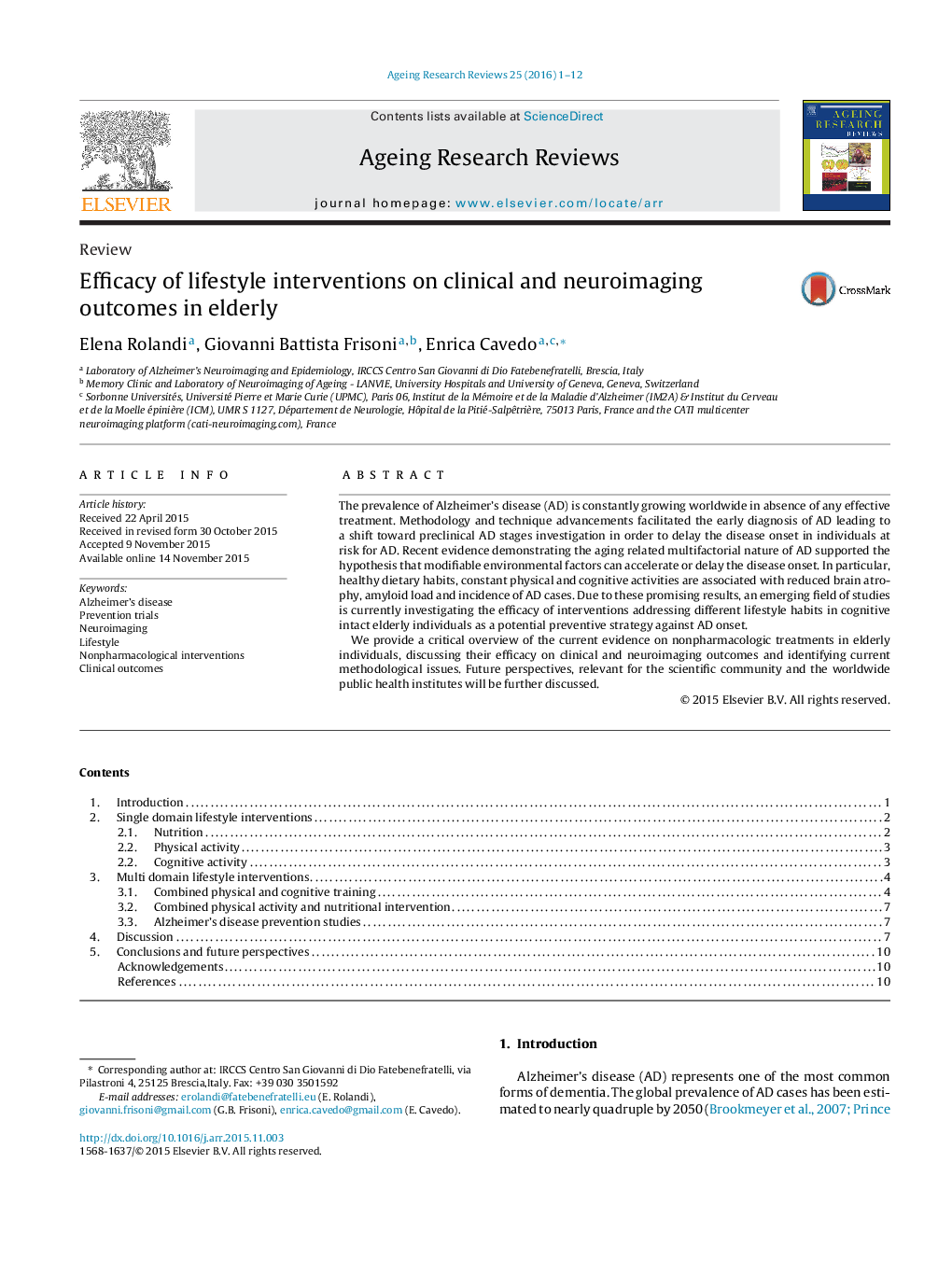| Article ID | Journal | Published Year | Pages | File Type |
|---|---|---|---|---|
| 1902187 | Ageing Research Reviews | 2016 | 12 Pages |
•Alzheimer’s disease prevalence is growing worldwide without effective treatments.•Healthy lifestyle are associated with reduced Alzheimer’s disease incidence.•Multiple non pharmacological interventions might delay Alzheimer’s disease onset.•To test multiple interventions long term follow-up are needed.•MRI markers are promising outcome measures for multiple interventions.
The prevalence of Alzheimer’s disease (AD) is constantly growing worldwide in absence of any effective treatment. Methodology and technique advancements facilitated the early diagnosis of AD leading to a shift toward preclinical AD stages investigation in order to delay the disease onset in individuals at risk for AD. Recent evidence demonstrating the aging related multifactorial nature of AD supported the hypothesis that modifiable environmental factors can accelerate or delay the disease onset. In particular, healthy dietary habits, constant physical and cognitive activities are associated with reduced brain atrophy, amyloid load and incidence of AD cases. Due to these promising results, an emerging field of studies is currently investigating the efficacy of interventions addressing different lifestyle habits in cognitive intact elderly individuals as a potential preventive strategy against AD onset.We provide a critical overview of the current evidence on nonpharmacologic treatments in elderly individuals, discussing their efficacy on clinical and neuroimaging outcomes and identifying current methodological issues. Future perspectives, relevant for the scientific community and the worldwide public health institutes will be further discussed.
